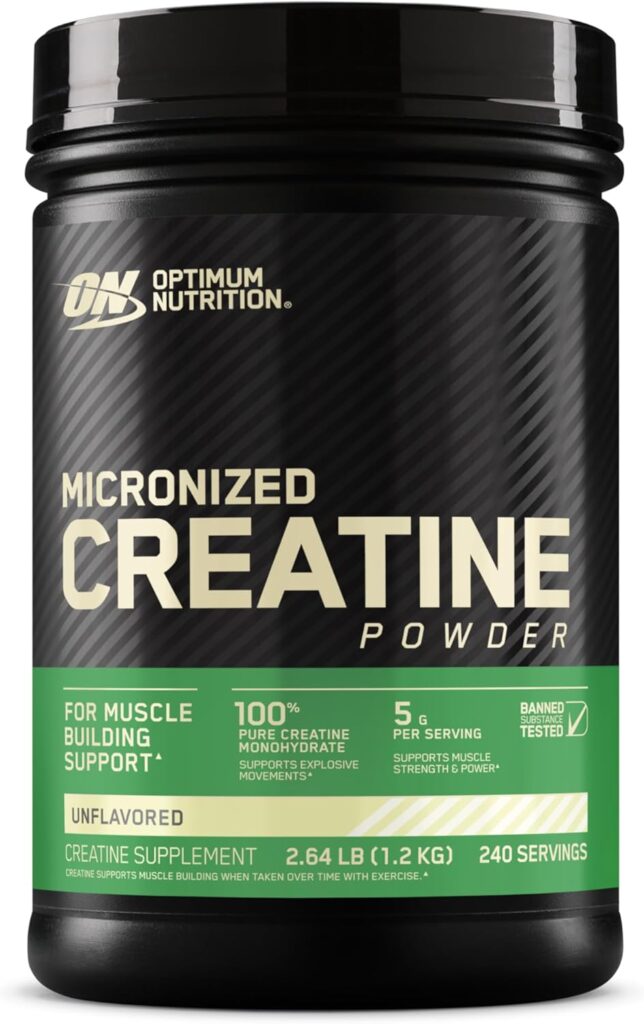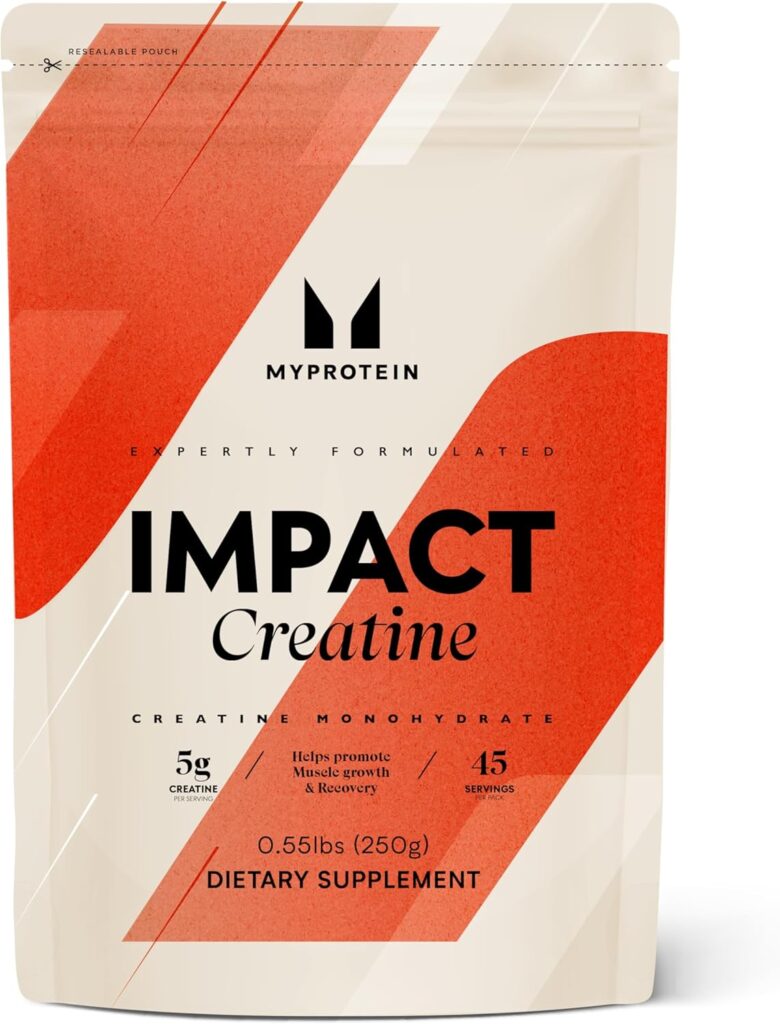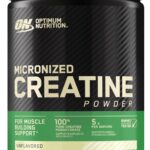There are so many benefits to using creatine. From cognitive function to increased muscle mass and improved workout performance! Creatine has been a staple in my daily routine for over 15 years, and I can confidently say it has been one of the most impactful supplements I’ve ever used. My partner and I, both deeply involved in various sports and fitness pursuits, have experienced firsthand the benefits of creatine supplementation. From muscle growth and strength gains to cognitive and aging-related advantages, creatine has proven to be a versatile and essential part of our wellness journey. Let me take you through the five most surprising benefits of creatine and why it’s worth considering for anyone looking to optimize their health and gains in the gym.
What is Creatine?
Creatine is a naturally occurring compound found in small amounts in foods like red meat and fish. It’s synthesized in the body from amino acids. It is stored primarily in skeletal muscle, where it plays a key role in energy production. Supplementing with creatine increases the stores of phosphocreatine in your muscles, allowing for more efficient energy production during high-intensity activities.
I’ve included some links in this article to some creatine products that I have personally used and found success with. Below is the creatine I am using at the moment. But bear in mind that so long you are buying creatine monohydrate, unflavored. They should all be the same thing. So make sure to check the ingredients. Creatine monohydrate should be the only thing listed!
1. Enhanced Muscle Growth and Strength
One of the most well-documented benefits of creatine is its ability to enhance muscle growth and strength. Studies consistently show that creatine supplementation can significantly increase lean body mass and improve performance in strength-based exercises. For example:
- A meta-analysis published in the Journal of the International Society of Sports Nutrition (2017) found that creatine supplementation led to an 8% increase in muscle strength and a 14% increase in performance during high-intensity exercises.
- A study in Medicine & Science in Sports & Exercise (2003) demonstrated that creatine enhances muscle fiber growth by stimulating satellite cells, which are essential for muscle repair and growth.
My own experience aligns with these findings. Over the years, I’ve seen consistent strength improvements and muscle gains, all without any adverse side effects. My partner has also experienced similar benefits, using creatine to boost her endurance and power during her athletic pursuits.
2. Improved Brain Health and Cognitive Function
What many people don’t realize is that creatine is not just for muscles; it’s also a powerful ally for brain health. The brain, like muscles, requires a significant amount of energy to function optimally. By enhancing energy availability, creatine supports cognitive performance and neurological health.
- A study published in Psychopharmacology (2003) found that creatine supplementation improved short-term memory and intelligence scores in healthy adults.
- Research in the Journal of Neuroscience (2011) suggested that creatine might have neuroprotective effects, potentially reducing the risk of neurodegenerative diseases like Alzheimer’s and Parkinson’s.
Personally, I’ve noticed improved mental clarity and focus since incorporating creatine into my regimen. My partner, who juggles a demanding career and intense training sessions, has experienced similar cognitive benefits, helping her stay sharp and energized throughout the day.
3. Supports Healthy Aging
As we age, maintaining muscle mass, strength, and cognitive function becomes increasingly important. Creatine offers unique benefits in this regard, making it a valuable supplement for older adults.
- A study in the Journal of Nutrition, Health & Aging (2007) highlighted that creatine supplementation in older adults improved muscle strength, functional performance, and overall quality of life.
- Research published in Experimental Gerontology (2016) showed that creatine, combined with resistance training, helped preserve muscle mass and bone density in aging populations.
My partner and I aren’t in our senior years yet, but we view creatine as an investment in our future health. By supporting muscle and brain health now, we’re laying the groundwork for a healthier, more active lifestyle as we age.
4. Suitable and Safe for Both Men and Women
There’s a common misconception that creatine is only for male bodybuilders. This couldn’t be further from the truth. Creatine is just as beneficial for women, offering the same muscle, performance, and cognitive advantages.
- A study in the European Journal of Applied Physiology (2006) found that women who supplemented with creatine experienced significant improvements in muscle strength and power during resistance training.
- Importantly, creatine is not associated with hormonal changes or unwanted side effects for women, making it a safe and effective choice for female athletes and fitness enthusiasts.
My partner’s experience is a testament to this. She has consistently used creatine to enhance her training performance and recovery, with no adverse effects.
5. Busts Myths About Supplementation Safety
Despite its proven benefits, creatine is often misunderstood. Let’s address some common myths:
- Myth: Creatine causes bloating or water retention. While creatine does increase water content in muscles, this is intracellular water, not subcutaneous water, meaning it does not cause a bloated appearance.
- Myth: Creatine damages the kidneys. Extensive research, including a study in the Journal of the International Society of Sports Nutrition (2007), confirms that creatine is safe for long-term use in healthy individuals, with no adverse effects on kidney function.
- Myth: Creatine is only for athletes. As we’ve discussed, creatine offers benefits for cognitive health, aging, and overall well-being, making it valuable for anyone, not just athletes.
How to Use Creatine Effectively
Using creatine is simple and convenient. The most common form is creatine monohydrate, which is widely available, affordable, and highly effective. Here’s how we incorporate it into our routine:
- Dosage: A standard daily dose of 3-5 grams is sufficient for most people. During the initial week, some opt for a “loading phase” of 20 grams per day split into four doses to quickly saturate muscles, but this isn’t necessary.
- Timing: We take creatine at a time that’s convenient, often post-workout or with a meal. Timing is flexible since the effects are cumulative.
- Hydration: Staying hydrated is essential, as creatine increases water content in muscles.
Conclusion: Why Creatine is a Lifelong Ally for Health
After 15 years of consistent use, I’m convinced that creatine is one of the most effective and versatile supplements available. It has helped me and my partner build strength, improve performance, and support cognitive health, all without any negative side effects. Beyond fitness, it’s a tool for enhancing brain function and aging gracefully.
If you’re considering adding creatine to your regimen, I encourage you to give it a try. Whether you’re an athlete, a busy professional, or simply someone looking to optimize your health, creatine could be the game-changer you’ve been searching for.









Leave a Reply